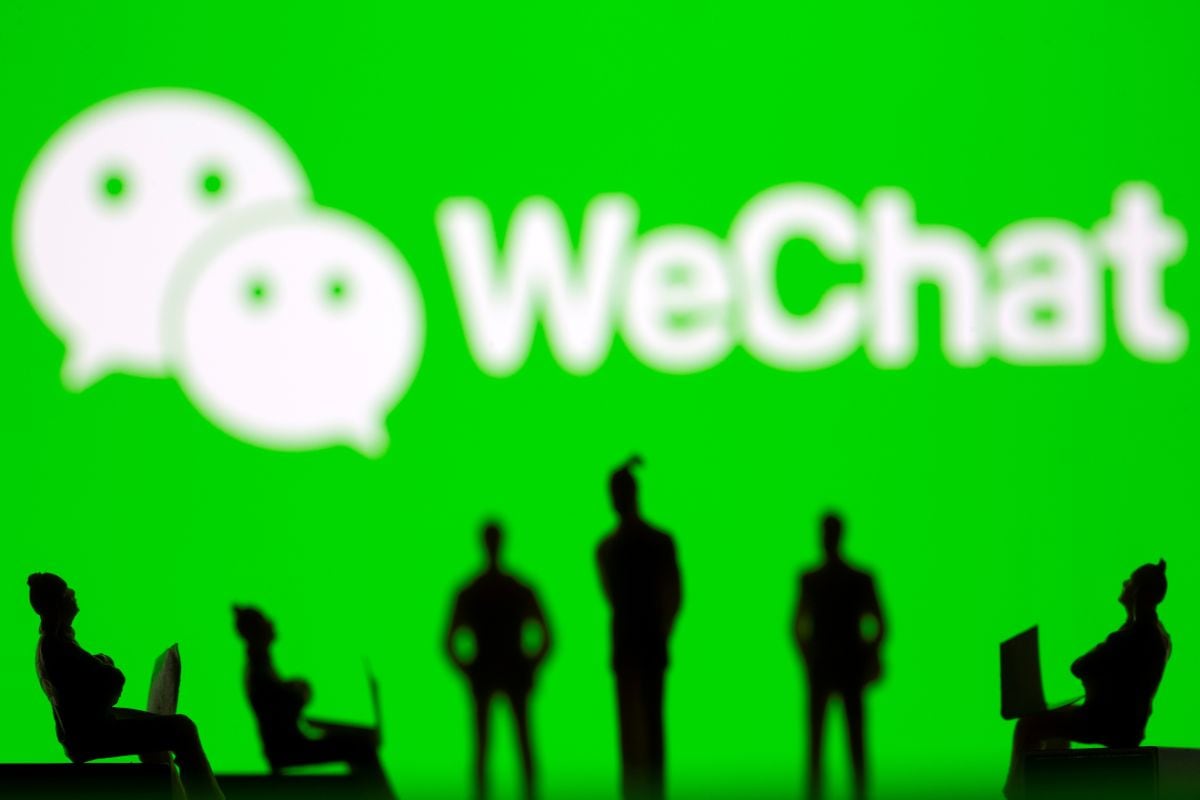On a hot summer’s day last year, the 90’s boy band Backstreet Boys clambered on to a stage in Pennsylvania and belted out hits as 44 million viewers tuned in from thousands of miles away for the online concert hosted by China’s WeChat Channels.
The show is just one of many events held by WeChat owner Tencent to promote the app’s short-video platform – described by the tech giant’s founder Pony Ma as “the hope of the company”.
Tencent Holdings Ltd has tapped other entertainers too like Taiwan’s Jay Chou and Irish boy band Westlife for livestreamed concerts and, according to a source, has set up a team to build a community of content creators as it seeks to challenge the dominance of ByteDance, the owner of TikTok and Douyin, and Kuaishou in the short-video business.
“Tencent hopes it can turn Channels into the next WeChat Pay. It has a shot at it. But it is also going to be difficult,” said Liao Xuhua, a senior analyst at research firm Analysys.
WeChat Pay became the second-biggest player in China’s mobile payment market within a year of its 2013 launch, behind Alipay which is owned by Jack Ma-founded Ant Group.
Two sources familiar with Tencent said the importance of Channels has been repeatedly communicated within the company.
The two-year old platform has been a bright spot for Tencent in an otherwise dismal 2022 when revenue for its other products, such as games and payment services, were slammed by tighter gaming regulations and strict COVID-19 curbs.
The total number of views on Channels surged more than three-fold last year, Tencent said this week as it revealed its latest growth figures for the platform.
Daily active creators and video uploads more than doubled.
Gross merchandise value (GMV) from livestreaming e-commerce, where telegenic personalities hawk goods online in real time, jumped more than 800 percent on Channels, the company said.
It did not disclose absolute figures.
A LatePost report says Channels’ daily transactions from livestreamed sales pitches reached more than CNY100 million ($15 million, or roughly Rs. 122 crore) in September 2022 for the first time, indicating an annual rate of about CNY36 billion (roughly Rs. 43,000 crore).
But Douyin was already aiming to bring its GMV to over 1 trillion yuan ($155 billion or roughly Rs. 12 lakh crore) in 2021, a six-fold jump from 2020 levels, sources said at the time. ByteDance does not publicly disclosee official GMV numbers.
Integrating products
Tencent has been integrating many of its products, ranging from Tencent Meetings to WeChat Mini Program, with Channels to help creators livestream content just like the U.S. band Backstreet Boys.
Tencent Meetings is a Zoom-like teleconference service while mini programs are like apps on Apple’s iOS and Google’s Android operating systems but less data intensive and run within WeChat.
An integration would allow, for example, a podcast host to conduct an interview on Meetings and livestream it on Channels. If the host recommends a product during the chat, a link can pop up on the screen to take viewers to a Mini Program where they can buy the product using WeChat Pay.
Tencent has also slashed the threshold for monetisation on Channels, allowing users with as few as 10 followers, versus 1,000 earlier, to start making money through advertisements.
TikTok requires content creators to have more than 10,000 followers to start monetising.
Channels has also opened up ad opportunities “like never before”, said Li Yikai, general manager of Americas and EMEA at ad agency Nativex, versus WeChat that pushes a few ads a day.
“When you are already scrolling and come across an ad, you don’t think twice about it. So naturally you come across a lot more ads with short videos,” Li said.
In November, Tencent President Martin Lau said Channels’ advertising revenue was on track to reach 1 billion yuan in the fourth quarter of 2022.
For TikTok and Douyin, research firm Insider Intelligence estimated in April last year that ad revenues would together reach more than $30 billion (roughly Rs. 2.4 lakh crore) for 2022.
Channels has also started charging e-commerce merchants a 1 percent to 5 percent commission fee from this month.
Douyin has been charging 1 percent to 10 percent since 2020.
Rivalry
While some analysts see Channels as Tencent’s best chance to catch up with ByteDance, others believe it will be tough for it to become as big as Douyin, the Chinese version of TikTok.
“When you have to start from being a social network app and then enter into the short-video space, you have to build up a whole e-commerce system to support it … I won’t say they can’t get there but it’s very difficult,” Analysys’ Liao said.
But Shawn Yang, managing director at research group Blue Lotus Capital Advisors, is bullish on Channels given the potential of WeChat’s traffic.
WeChat, China’s most popular chat app, has more than a billion active users.
“For example, in Douyin or Kuaishou, you won’t be able to ask your viewers to add you on WeChat. But on Channels, you can quickly add somebody on WeChat,” Yang said.
“This is very beneficial to those who already have their own private traffic on WeChat,” he said.
© Thomson Reuters 2023
Check out our Latest News and Follow us at Facebook
Original Source

